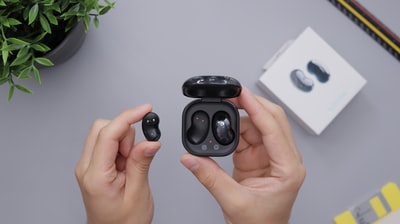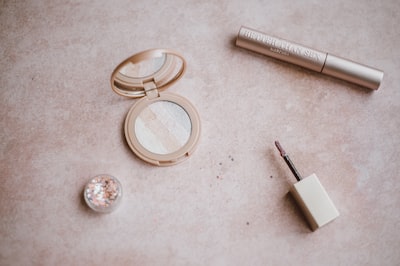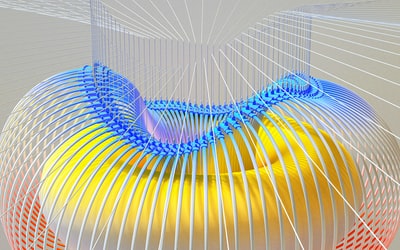Defending against AI impersonation in the beauty industry has become an urgent concern for makeup artists worldwide. With the advent of artificial intelligence, the boundaries of what is real and what is virtual have blurred like a watercolor painting in a rainstorm.
It is no longer enough for makeup artists to rely solely on their brushes and palettes to create stunning looks; they must now also develop strategies to protect their unique artistic styles from being replicated and manipulated by AI-powered algorithms. This new wave of technological advancements threatens not only the livelihoods of makeup artists but also the very essence of authenticity and creativity in the beauty industry.
In this ever-evolving landscape, where the line between human and machine becomes increasingly indistinguishable, makeup artists must embrace innovative approaches to safeguard their craft. This article explores the different AI impersonation prevention strategies that makeup artists can employ to reclaim control over their artistry and preserve the integrity of their work.
Makeup artists, beware! The beauty industry, known for its transformative powers, has found itself in the clutches of a new adversary. Unmasking AI impersonation: glamming up your defenses.
The phrase alone carries an air of mystery, something out of a science-fiction novel. Yet, in this era of technological marvels, where boundaries between reality and virtuality blur, these words ring with alarming truth.
What was once the realm of human artistry, the delicate strokes of a brush, the skillful application of color, is now at risk of being usurped by artificial intelligence. Picture this: a world where beauty is no longer in the hands of an artist, but in the calculation of an algorithm.
It’s a terrifying thought, one that poses a threat not only to the art of makeup but also to the livelihoods of those who have dedicated their lives to this craft. In an industry built on personal touch and human connection, can defenses be mounted against the encroachment of technology? Can the light of human creativity outshine the eerie glow of AI? These are the questions that plague the minds of makeup artists worldwide.
The battle lines have been drawn, and the stage is set for a clash between innovation and tradition, between the cold precision of machines and the warmth of human touch. As the beauty industry grapples with this existential crisis, it is imperative that we uncover the tools and techniques that can shield the realm of makeup from AI impersonation.
The future of the industry, and the very essence of its artistry, hangs in the balance. It’s time to unmask the truth, to seek out the safeguards that will defend against the encroachment of AI impersonation.
The brushes may shake, the palettes may tremble, but the human spirit of creativity and ingenuity shall prevail. Makeup artists, beware! The battle for beauty has only just begun.
Table of Contents
Rise of AI Impersonation: Threats Faced by Makeup Artists
Makeup artists, listen up! Your artistry and skills are not the only things being imitated nowadays. With the rise of AI impersonation, you need to be extra cautious.
Protecting your makeup business from AI impersonators is now a pressing concern. These sneaky impostors can replicate your work and deceive your clients, potentially damaging your reputation.
In fact, according to Vogue, the fashion industry is already facing the challenges posed by AI-generated images. But fear not, there are steps you can take to glam up your defenses.
Stay updated with the latest technological advancements, invest in AI detection tools, and establish a strong online presence to emphasize your unique style and personal touch. Remember, your expertise can’t be replicated, and by being proactive, you can safeguard your business from the perils of AI impersonation.
Unveiling the Tools: How AI Impersonation Works
The beauty industry is fast-paced, with makeup artists excelling at transforming ordinary faces into glamorous works of art. However, a new threat is emerging: AI impersonation.
This advanced technology can deceive even the most discerning eye by flawlessly imitating renowned makeup artists’ techniques and styles. To defend against AI impersonation in the beauty industry, it is crucial to understand how these tools work.
By utilizing advanced deep learning algorithms, AI can analyze a vast amount of makeup tutorials, photos, and videos to learn different techniques’ intricacies. It can then replicate these techniques with stunning accuracy.
Makeup artists now need to not only perfect their craft but also adapt to this new digital adversary. Stay tuned for our next installment, where we will go deeper into strategies for strengthening your defenses against AI impersonation.
Cybersecurity Measures: Shielding Your Unique Makeup Artistry
In the ever-changing world of technology, cybersecurity is crucial for beauty professionals. As makeup artists become more prominent in the digital age, their unique artistry is at risk of AI impersonation, which can seriously damage their reputation and livelihood.
Machine learning advancements now allow AI algorithms to replicate intricate makeup designs, tricking clients and industry insiders. Uncovering AI impersonators is a difficult task, requiring makeup artists to strengthen their defenses against these cyber threats.
But how can they protect their craft in a world dominated by synthetic faces and augmented reality? This article reveals innovative cybersecurity measures that beauty professionals must adopt to safeguard their unique makeup artistry in the face of advancing AI technologies. From biometric authentication to secure digital portfolios, it’s time for makeup artists to stay ahead and ensure that their creative genius remains untouchable.
Identifying AI-Generated Content: Spotting the Fakes
Protect your makeup artist business from AI impersonation. In today’s digital age, where technology is advancing rapidly, the threat of AI-generated content is increasing.
Makeup artists, known for their creativity and transformative abilities, are not immune to this challenge. AI impersonation can erode trust and authenticity in the industry as the boundaries between reality and virtual blur.
So, how can professionals protect themselves and their businesses? The key is to identify AI-generated content and spot the fakes. Stay vigilant and informed to develop strategies against this menace.
Analyze the symmetrical features and flawless skin of virtual models and evaluate the authenticity of online testimonials. The battle against AI impersonation requires a multifaceted approach.
Embrace technology, adapt your defenses, and maintain your unique human touch. Never underestimate the power of your artistry against silicon adversaries.
Protecting Your Reputation: Strategies for Defense and Recovery
AI impersonation in the world of makeup is a pressing concern for professional makeup artists. The rise of AI technology has introduced new challenges in protecting one’s reputation.
In an industry that values creativity and personal touch, the idea of an AI system mimicking a makeup artist’s style is both intriguing and alarming. Makeup artists must now consider defense and recovery strategies against potential impersonation.
AI systems are capable of replicating makeup looks, potentially leading clients to choose an AI artist over a human. This threatens makeup artists’ livelihoods and raises questions of authenticity in the beauty industry.
In this uncharted territory, makeup artists must establish unique identities and view technology as a tool to enhance their craft rather than a threat to their profession.
Staying One Step Ahead: Adapting to the AI Landscape
With technology advancing rapidly, even makeup artists are affected by artificial intelligence. As the industry digitizes, new AI impersonation tactics pose a threat to professionals.
Understanding and unveiling these tactics is crucial. Digital avatars and virtual assistants can flawlessly mimic techniques and provide personalized advice.
Staying ahead in this landscape requires makeup artists to enhance their skills and stay updated on trends and tools. By embracing AI technology, they can maintain their edge in a world where the line between human artistry and artificial intelligence is blurred.
Cleanbox: Protecting Makeup Artists Against AI Impersonation and Streamlining Email Communication
Cleanbox can be a game-changer for makeup artists when it comes to preventing AI impersonation. With the rise of deepfake technology, it’s becoming increasingly important to safeguard against scammers pretending to be someone they’re not.
Cleanbox‘s advanced AI technology comes to the rescue, offering a powerful solution. By sorting and categorizing incoming emails, it helps identify potential phishing attempts and malicious content, ensuring that makeup artists’ inboxes remain secure.
The tool also ensures that priority messages from clients and potential collaborations stand out, protecting artists’ time and making sure no important opportunities are missed. Makeup artists can streamline their email experience with Cleanbox, decluttering their inbox and focusing on what matters most: their work.
So say goodbye to email headaches and hello to a safer and more efficient communication tool.
Frequently Asked Questions
AI impersonation refers to the use of artificial intelligence technology to mimic or replicate the appearance, behavior, or voice of a specific individual.
AI impersonation can pose a threat to makeup artists as it can enable someone to create highly realistic digital imitations of their work, potentially leading to the unauthorized use or distribution of their creations.
The potential risks faced by makeup artists due to AI impersonation include loss of creative control, dilution of their brand identity, challenges in proving ownership, and potential financial losses.
Makeup artists can defend themselves against AI impersonation by watermarking their work, using digital rights management tools, monitoring online platforms for unauthorized use, educating clients and followers about the risks, and seeking legal protection for their creations.
Yes, there are continual advancements in AI technology that can further enhance impersonation capabilities, such as improved facial recognition algorithms, voice synthesis technologies, and deepfake techniques.
Makeup artists can stay updated and informed about AI impersonation threats by actively following industry news, participating in relevant forums or communities, attending workshops or conferences, and collaborating with professionals who specialize in AI security.
Makeup artists can take legal measures against AI impersonation, such as registering their creative works for copyright protection, pursuing legal actions against infringers, consulting intellectual property lawyers, and staying aware of relevant laws and regulations.
While it may be difficult to completely prevent AI impersonation, makeup artists can take proactive measures to minimize the risks and protect their creations from unauthorized use.
Recap
In the fast-evolving world of artificial intelligence, where deepfakes and impersonation have become increasingly sophisticated, makeup artists find themselves at the forefront of a new battleground. They are the defenders, armed with brushes and palettes, against the potential onslaught of AI-generated replicas.
As technology continues to blur the line between reality and the virtual realm, makeup artists must adapt and develop innovative strategies to protect their craft. The artistry and skill of makeup, which has long been a means of self-expression and transformation, now carries the added weight of defense against deception.
One of the most effective strategies employed by makeup artists is the utilization of unconventional techniques. By using unconventional colors, textures, and application methods, they create a unique visual signature that is difficult for AI algorithms to replicate accurately.
The unpredictability and complexity inherent in these techniques challenge the precision and analytical capabilities of AI systems, ensuring that the human touch remains an essential element in the process.Another key approach adopted by makeup artists is the enhancement of personal brand identity.
By cultivating a distinct style and aesthetic, they establish themselves as individual artists rather than mere technicians. This personal branding creates an emotional connection between the artist and their clients, making it harder for AI-generated duplicates to imitate convincingly.
Makeup artists are harnessing the power of storytelling, infusing their work with narratives that resonate with their audience, cementing their position as irreplaceable human artists.Collaboration and knowledge sharing within the makeup artist community are also crucial in the fight against AI impersonation.
By staying informed about the latest advancements in AI technology, artists can proactively develop countermeasures. Additionally, they can pool their collective expertise and experiences to create a resilient network that supports and empowers each other.
Through mutual support and the exchange of ideas, makeup artists can collectively develop innovative strategies that protect their field from the encroaching threat of AI impersonation.As makeup artists continue to navigate the ever-evolving landscape, they must remain adaptive and adaptable.
The challenges posed by AI impersonation may seem daunting, but these artists are equipped with the creativity and resourcefulness to overcome them. By embracing unconventional techniques, forging strong personal brands, and fostering a community of collaboration, these artists stand resilient in their mission to safeguard the integrity of their craft.
And in doing so, they remind us all of the irreplaceable value of human artistry in an increasingly virtual world.








 in Wyoming
in Wyoming